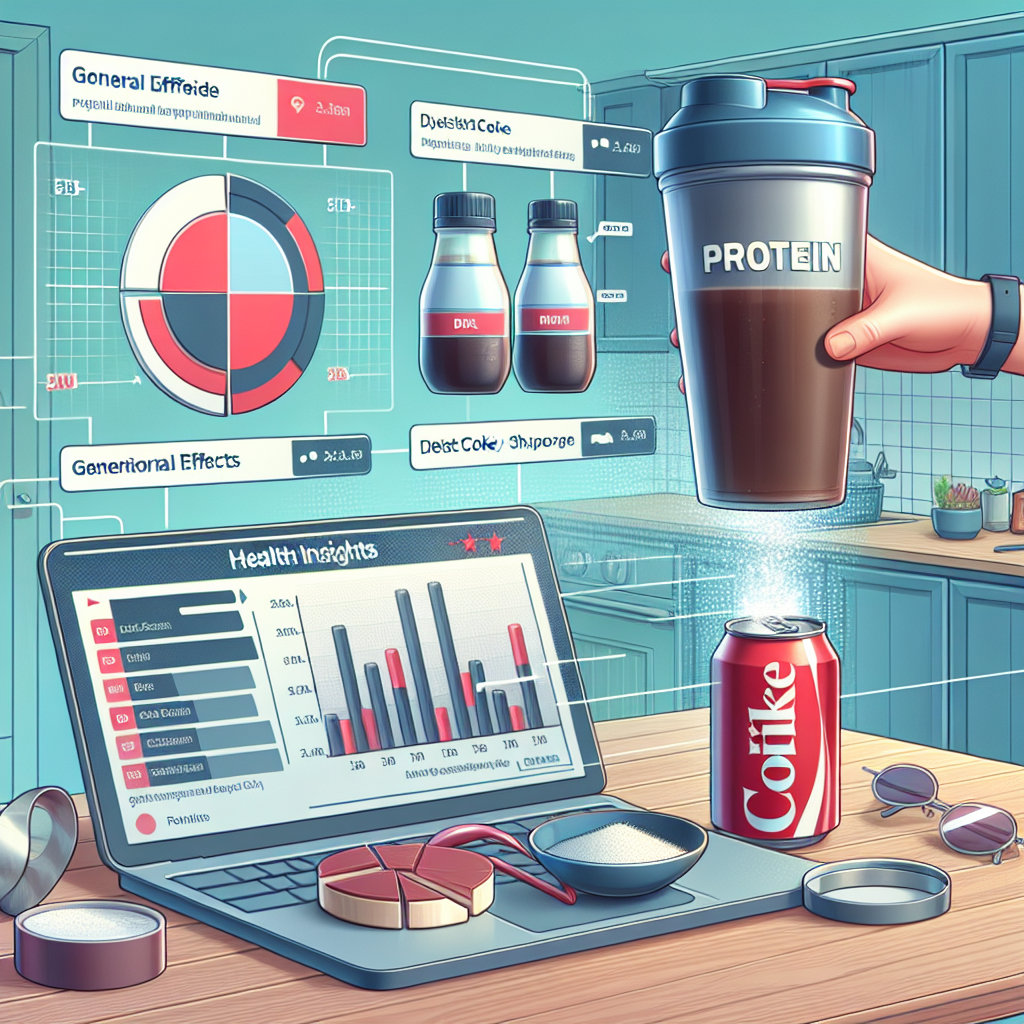Ad Details
-
Ad ID: 490
-
Added: November 20, 2024
-
Views: 124
Description
===
In recent months, the TikTok Protein Diet Coke trend has taken social media by storm, captivating both fitness aficionados and casual dieters alike. Imagine a beverage that combines the refreshing fizz of Diet Coke with a protein boost—sounds intriguing, right? This novel concoction may seem like a game-changer for those seeking to lose weight or enhance their nutrition, but is it truly a healthy alternative or merely a fleeting social media craze? In this article, we delve deep into the dynamics of this TikTok phenomenon, uncovering the health implications and offering nuanced insights into its impact on our well-being.
Understanding the TikTok Protein Diet Coke Phenomenon
The TikTok Protein Diet Coke trend emerged as users began experimenting by adding flavored protein powders to Diet Coke, creating a bubbly beverage that promises to satisfy taste buds while delivering protein. This trend resonates with health-conscious individuals who often struggle to meet their daily protein requirements. Incorporating protein into a well-loved drink may seem like an innovative way to make nutrition more enjoyable and accessible. The visually enticing videos, featuring people mixing, sipping, and giving enthusiastic reviews, contribute to its rapid popularity through the platform’s shareable nature.
Despite its surge in popularity, the trend raises questions about sustainability and long-term health benefits. TikTok’s algorithm favors visually engaging content, often prioritizing style over substance. As a result, many users may overlook scientific insights or expert opinions on nutrition. Users are drawn to quick fixes and trendy solutions, but the allure of “quick protein” in a fizzy format can mislead them about the broader nutritional picture. This trend underscores a critical need for consumers to sift through the noise and seek evidence-based information regarding dietary choices.
Moreover, the TikTok Protein Diet Coke trend highlights how social media can influence dietary habits and create a sense of community among followers. As individuals share their experiences and recipe variations, the collective enthusiasm can create a bandwagon effect, prompting more people to try this concoction. However, it is essential to approach such trends critically, recognizing that not all popular dietary practices are scientifically validated. By examining this phenomenon closely, we can better understand its implications for our health and overall dietary habits.
Health Implications of the Protein Diet Coke Trend
When evaluating the health implications of the Protein Diet Coke trend, one must consider the nutritional value of the components involved. Diet Coke, a zero-calorie soft drink, contains artificial sweeteners such as aspartame or sucralose. While these sweeteners are generally recognized as safe, ongoing debates around their long-term health effects persist. Some studies have suggested that artificial sweeteners may lead to increased cravings for sugary foods, potentially counteracting weight loss efforts. Thus, while the idea of a protein-enhanced beverage may seem appealing, the foundational ingredients raise concerns.
Adding protein powder to Diet Coke does provide an additional source of protein, which is beneficial for muscle repair and overall health. However, the type of protein used matters significantly; whey, casein, and plant-based proteins all vary in their amino acid profiles and digestibility. Some flavored protein powders also contain added sugars or artificial flavorings, which can contribute to the caloric content and may undermine the very goal of weight management. To make informed dietary choices, it’s crucial to scrutinize the full ingredient list and nutritional profile of the protein powder used.
Another essential consideration is hydration. While Diet Coke may quench thirst momentarily, caffeine and acidity can have diuretic effects that could lead to dehydration over time. For those engaging in regular physical activity, this could pose a risk. Ideally, individuals should prioritize water and nutrient-dense beverages for hydration while considering protein needs through whole foods. Understanding the balance of enjoyment and nutrition is vital when adopting any trend, including the TikTok Protein Diet Coke craze. Ultimately, blending entertainment with education can empower consumers to make choices that align with their health goals.
===
In summary, the TikTok Protein Diet Coke trend presents an interesting blend of social media influence and dietary innovation. While it offers a unique approach to increasing protein intake while enjoying a beloved beverage, the health implications warrant a closer look. Understanding the nutritional value of the ingredients involved and being mindful of the potential long-term effects of artificial ingredients can guide individuals towards healthier choices. As the fitness and dietary landscape continues to evolve, it’s paramount to remain informed and discerning, ensuring that our dietary habits serve our health in the long run. So, whether you’re a TikTok enthusiast or a curious dieter, take the time to explore and evaluate the trends that pique your interest, and remember that informed choices lead to better health outcomes.
Exploring the Rich Tapestry of Christmas FlavoursExperiencing Christmas Eve Traditions in Miller’s PointExploring the Magic of Christmas at the Plaza HotelRelevant LinkRelevant LinkRelevant LinkAlex Formenton: Latest Updates on His NHL JourneyUncovering the Truth: Inside the World of Dirty NewsAishwarya Rai: Latest Updates on Her Career and ProjectsRelevant LinkRelevant LinkRelevant Link






